Shade Cloth for Nurseries: How to Choose, Install, and Ensure Maximum Protection
Shade Netting for Nurseries
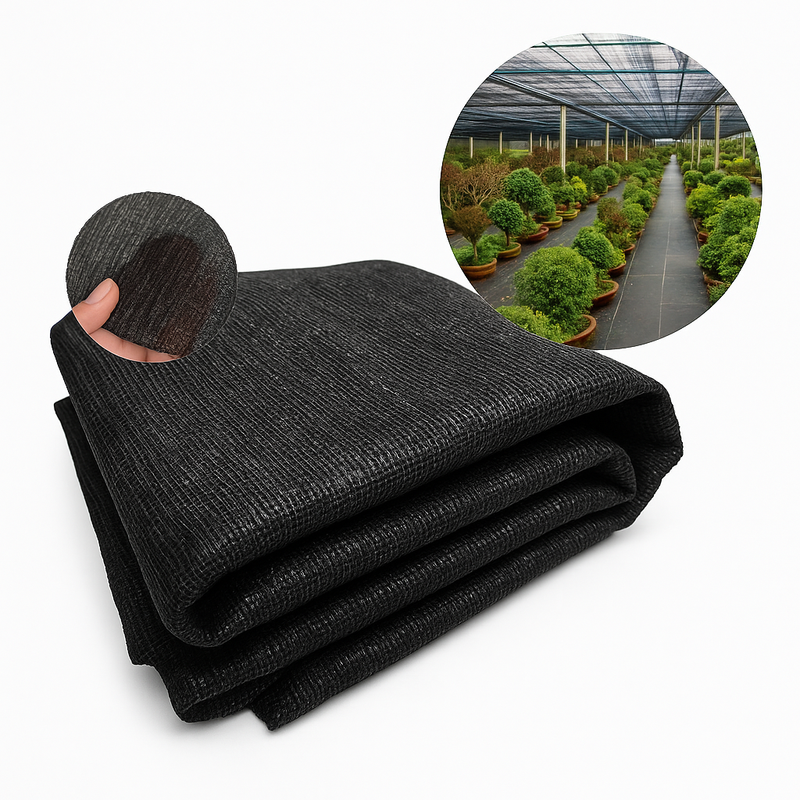
At CIKALA Industry and Commerce, we understand that proper protection is essential for the success of any nursery. Shade netting for nurseries has become indispensable equipment for producers looking to maximize results and minimize losses. Including quality and welfare for cattle.
In this comprehensive guide, we'll explore everything you need to know about shade nets: from choosing the ideal model to practical installation and maintenance tips.
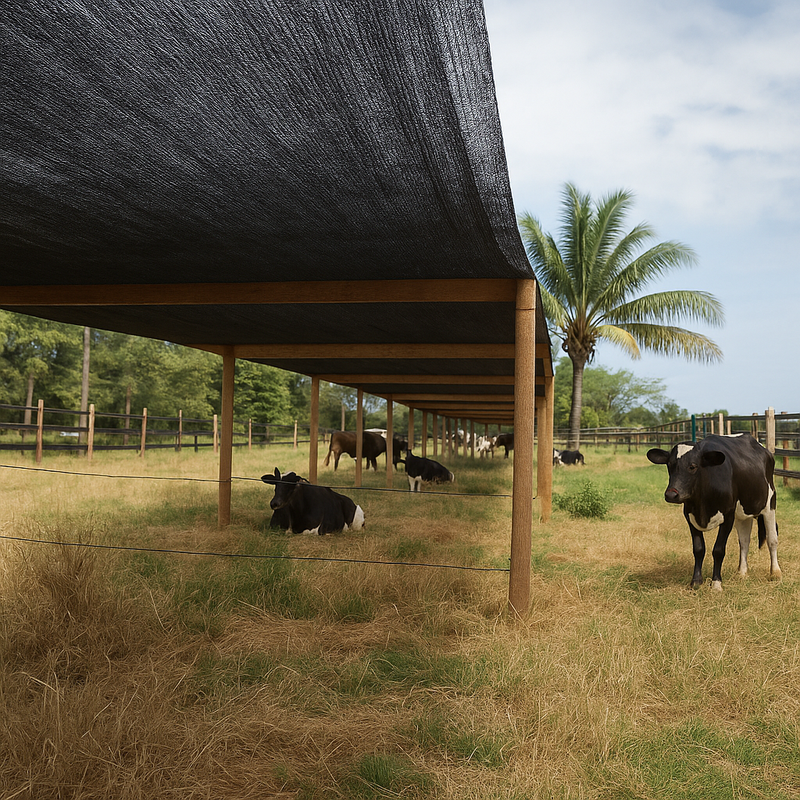
The Importance of Shade Netting for Your Nursery:
Shade netting is specialized material designed to filter sunlight and protect plants and animals from weather conditions. Its use is essential for:
- Protecting seedlings and young plants from excessive sun
- Reducing internal nursery temperature
- Protection against strong winds
- Filtering heavy rain
- Protecting animals from sun and bad weather
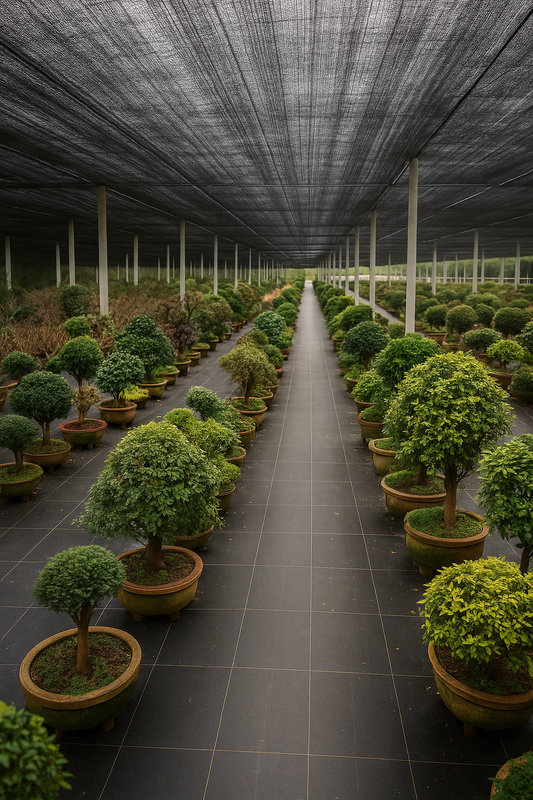
How to Choose the Ideal Shading Percentage for Your Nursery:
One of the most important aspects when choosing shade netting is the percentage of sunlight blockage:
35% Shade Netting
- Ideal for leafy vegetables
- Moderate protection for plants needing more light
50% Shade Netting
- Perfect for most seedlings and ornamental plants
70-80% Shade Netting
- The 80% netting for cattle nurseries reduces up to 80% of solar radiation, preventing thermal stress and increasing animal comfort. Allows ventilation while keeping the environment cool without gas buildup. Cushions the impact of light rain and hail, while controlling luminosity. Helps prevent entry of birds and larger insects. Made with durable material and UV-resistant additive for long lifespan.
- Recommended for orchids, bromeliads and sensitive plants
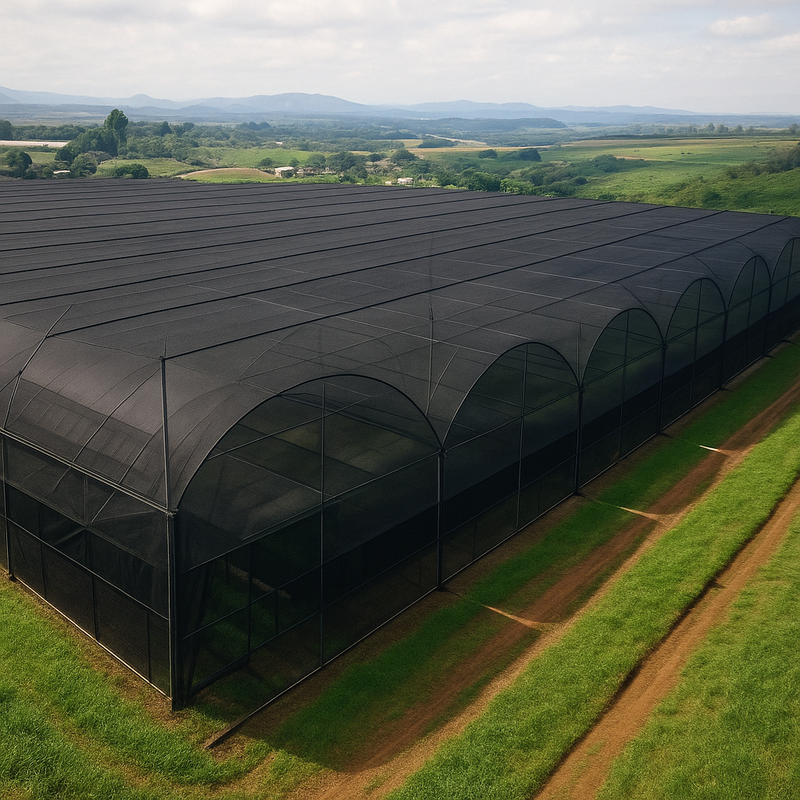
Installation Guide: Step-by-Step for Maximum Shade Net Durability:
Proper installation ensures your shade net has maximum efficiency and extended lifespan, preventing tears and premature wear. Follow this guide:
- Prepare the structure - Ensure posts, cables and supports are sturdy, level and rust-free.
- Measure precisely - Take exact area measurements, leaving minimal slack for tensioning without excess pressure.
- Secure with proper materials - Use marine ropes, reinforced clamps or stainless steel hooks to withstand winds.
- Distribute tension evenly - Stretch the net evenly, avoiding folds, air pockets or stress points.
- Protect edges and attachment points - Use reinforcements, edge tape or finishing ropes to prevent friction tears.
"I installed CIKALA's 50% shade netting in my seedling nursery and the difference was impressive."
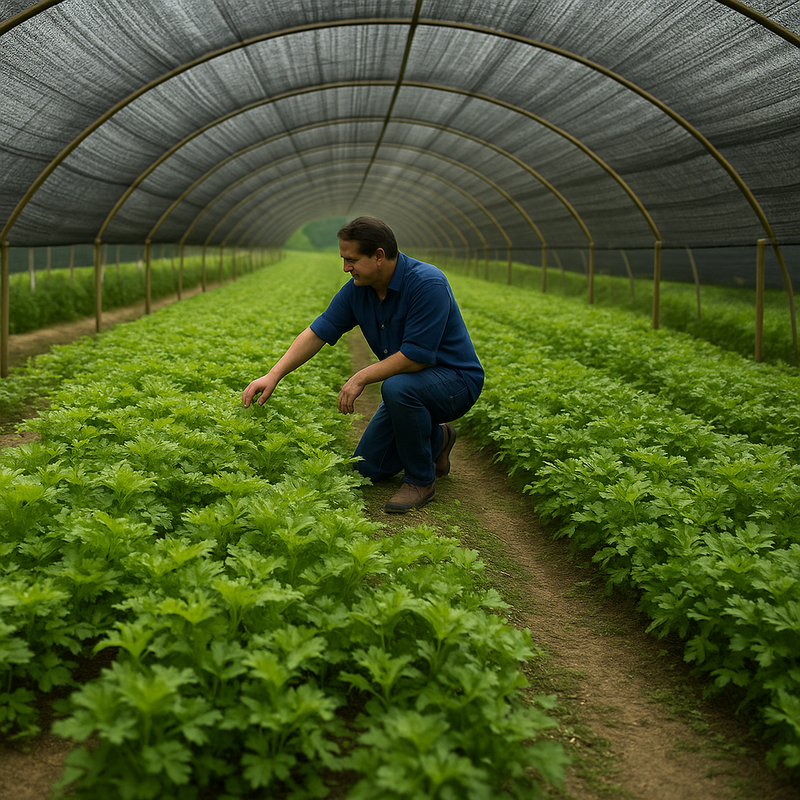
Maintenance and Care to Extend Net Lifespan:
With proper care, your shade net can last many years:
- Regular inspection: Check for tears, holes, edge wear or weakened areas. Every 1-2 months, especially after extreme weather.
- Immediate repairs: Use specialized net repair kits with resistant adhesives or patches. (For major damage: Consider replacing damaged sections or professional help).
- Extra care: Avoid chemical contact, keep netting away from corrosive pesticides or fertilizers.
Why Choose CIKALA Shade Nets?
- High-Quality Materials with warranty
- Customized Options
- UV Technology
- Nationwide Delivery
- Specialized Support
Frequently Asked Questions About Shade Netting
What is Nursery Shade Netting?
It's specialized netting that filters sunlight, protecting against excessive sun, wind and heavy rain.
How to choose the ideal shading level?
Depends on crop or animal type. Light-needing plants use 35-50%, while sensitive plants need 70-80% and Cattle 70-80% for better quality and protection.
What's the lifespan of Shade Netting?
The product can last up to 2 years, depending on use, cleaning care, proper storage and weather exposure.

Visit Our Store
CIKALA
